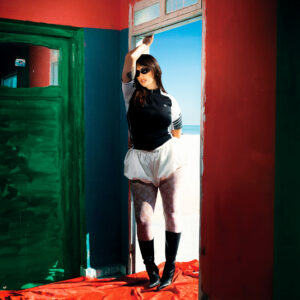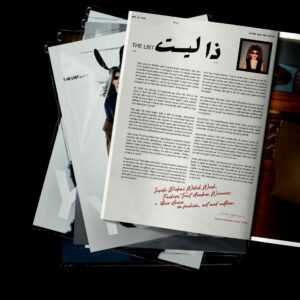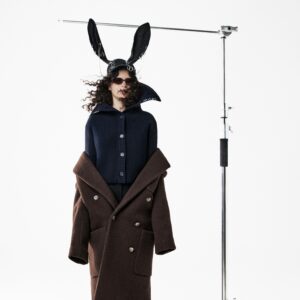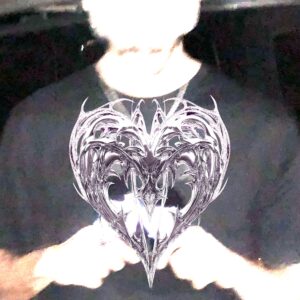Rita Malek (Instagram) is a Lebanese-Syrian artist based in Kuwait whose work moves fluidly across genres and geographies. In this conversation, she reflects on how sound became her first language, the complexities of belonging, and the creative process behind her latest EP, Habba.
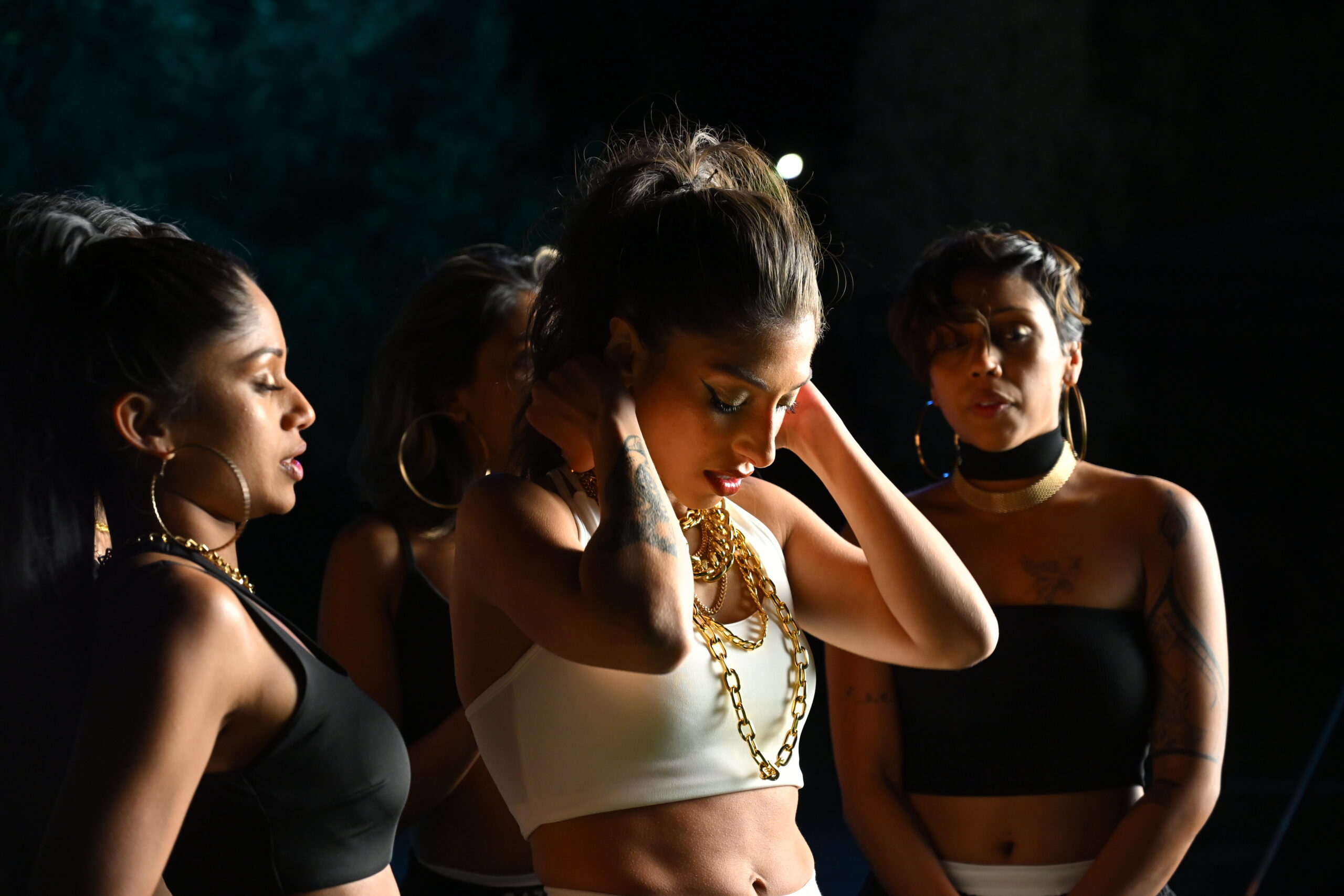
Rita Malek, welcome. When did you realize sound was how you made sense of the world?
I think it started when I was around 4 or 5. I was quiet, introverted child- never really social. The piano became my escape. I’d sit and play melodies from songs I’d heard or just make up random tunes, completely lost in them. Sound became my language. Even in school I remember pressing my ear to walls or tables, listening to the vibrations inside them. Somehow, they always sounded like a band playing to me. It was like I was tuning into a secret world no one else could hear.
You’re Lebanese-Syrian based in Kuwait – how has the mix of geographies shaped your identity and by extension your sound?
Being Syrian- Lebanese but born and raised in Kuwait has shaped almost everything about me – both my identity and sound. At home, my mother would play Fairuz, cook us Levantine food and tell us stories about our culture and roots. That connection to home was always strong. But outside, I was immersed in Kuwaiti culture- school, music, fashion, food and even celebrating national day.
At one point, It felt like an identity crisis. I didn’t fully fit with my people, and I wasn’t Kuwaiti either. But deep down, I felt I belonged to all of it. That blend began to shape how I speak, how I think, and eventually how I hear and create music.
My sound became a reflection of that in-between space- something familiar yet undefined.
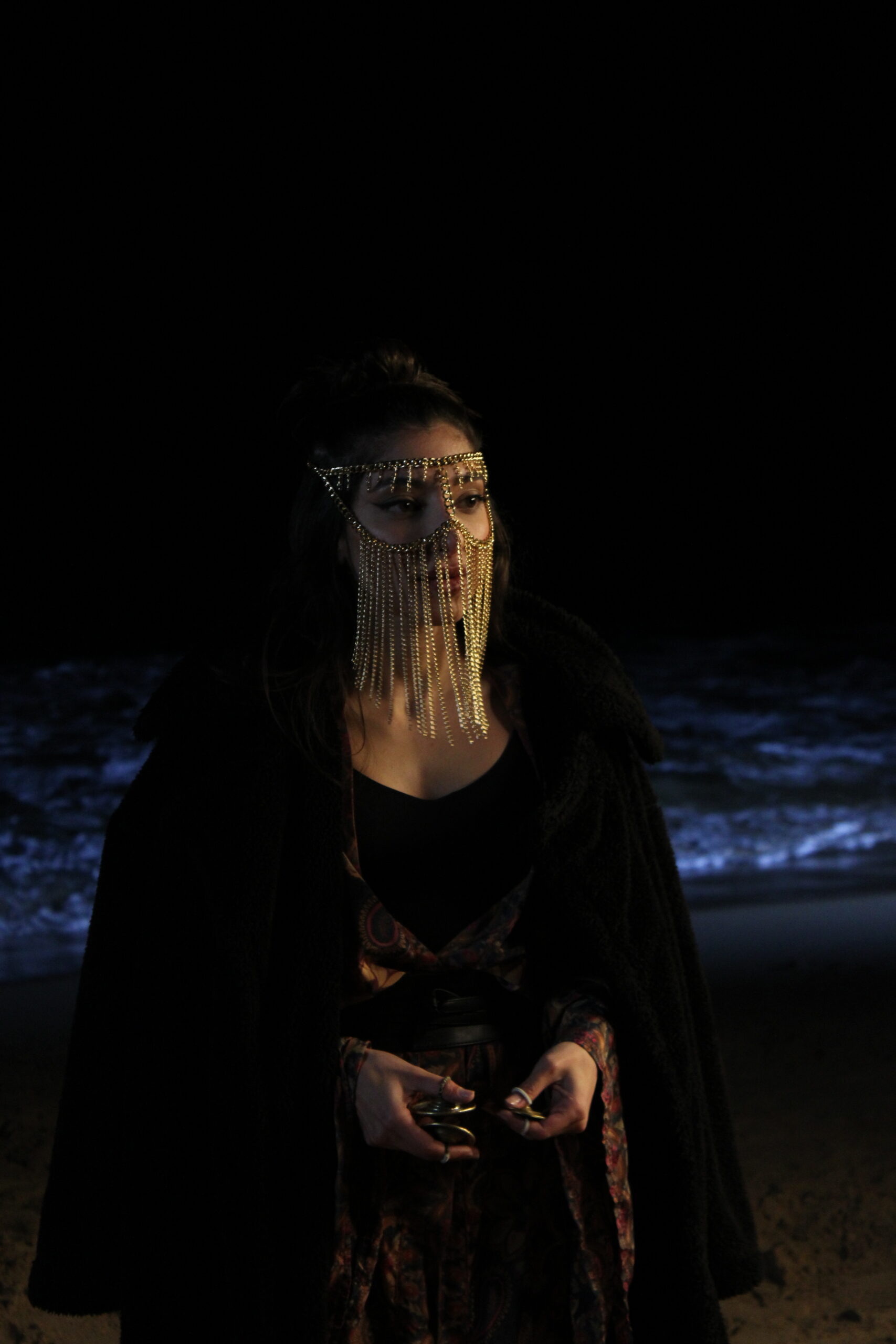
What’s something about your relationship with music that you think people wouldn’t expect or see at first glance?
People usually see the final result- me playing instruments, singing, composing- but what they don’t always see is how emotional and chaotic my relationship with music really is. It’s not always romantic or effortless. Sometimes I go through creative blocks where I can’t write or play, and during those times, I don’t just feel stuck – I feel guilty. It’s like I’m neglecting a part of myself. I feel uneasy, like I’m disconnected from something essential.
Music isn’t just a hobby for me – it’s something I gave up a lot for. I walked away from a more stable, traditional life to invest everything into it. It cost me comfort, security, and sometimes even relationships.
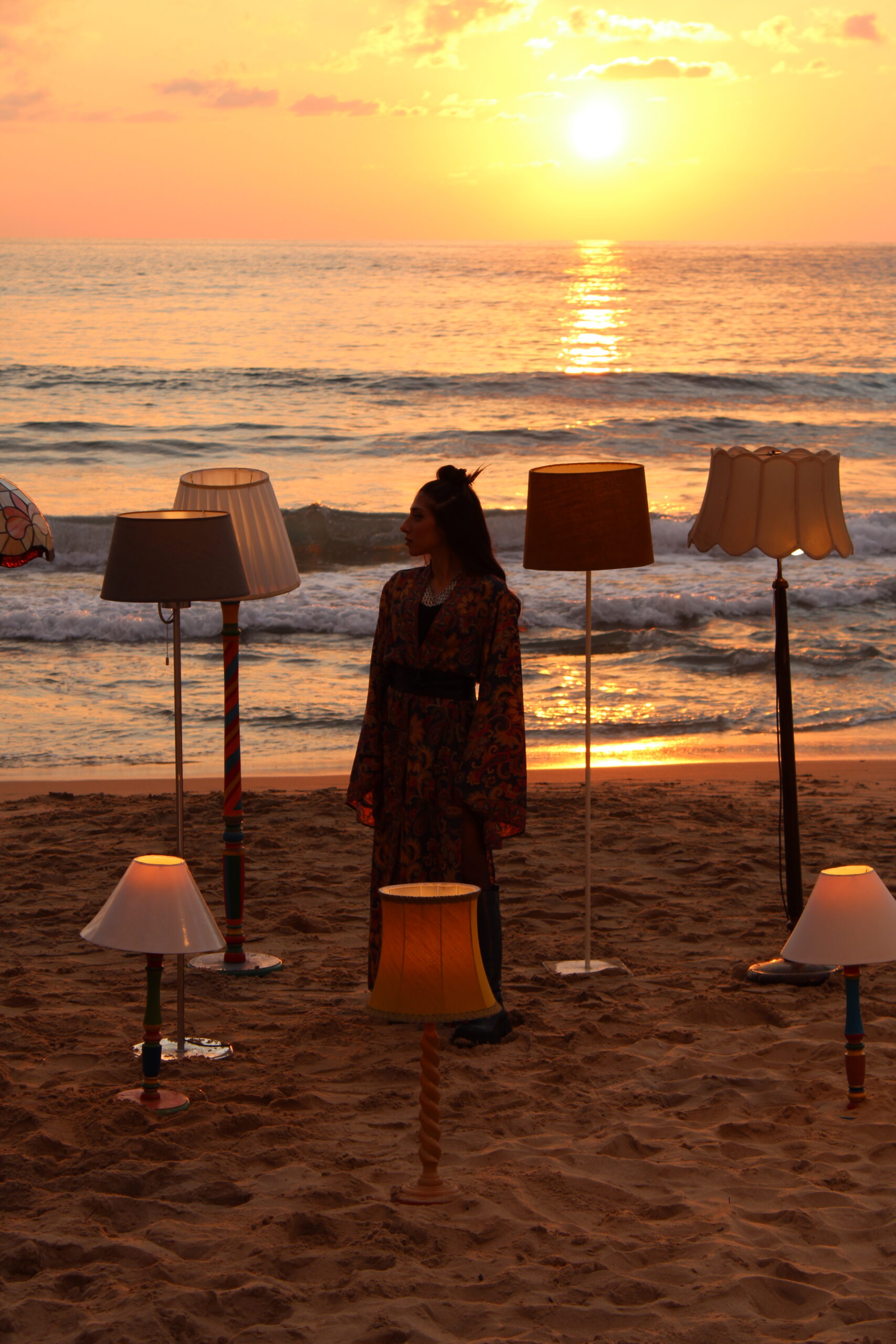
But I knew I couldn’t live fully without it. That kind of commitment comes with pressure. Music has become so deeply tied to my identity that when I’m away from it, I feel lost. It isn’t just an outlet, it’s a mirror, a home, and sometimes a battle.
People assume musicians are always inspired and in control, but for me, it’s a lifelong push and pull – messy, consuming and beautiful all at once.
“Habba” feels alive, full of energy and experimentation. What were you trying to capture or express with this EP?
With “Habba”, I wanted to capture the feeling of chaos – that rush of energy you can’t always explain. It’s playful, unpredictable, raw – almost like a celebration and a meltdown happening at the same time. The word “habba” itself means a trend or a wave, and I played with that idea of something that comes out of nowhere, takes over, and disappears.
That’s what some emotions feel like – loud, fast, misunderstood.
I was experimenting with sound and blending genres from other cultures with mine or the ones I am familiar with, a different, yet similar exciting sound. I wasn’t trying to follow any rule. I wanted the EP to feel alive, like it had a pulse of its own.
It’s a reflection of my own inner world – how intense, joyful, or even absurd things can feel when you’re deeply tuned in. I didn’t want it to be polished. I wanted it to be honest.
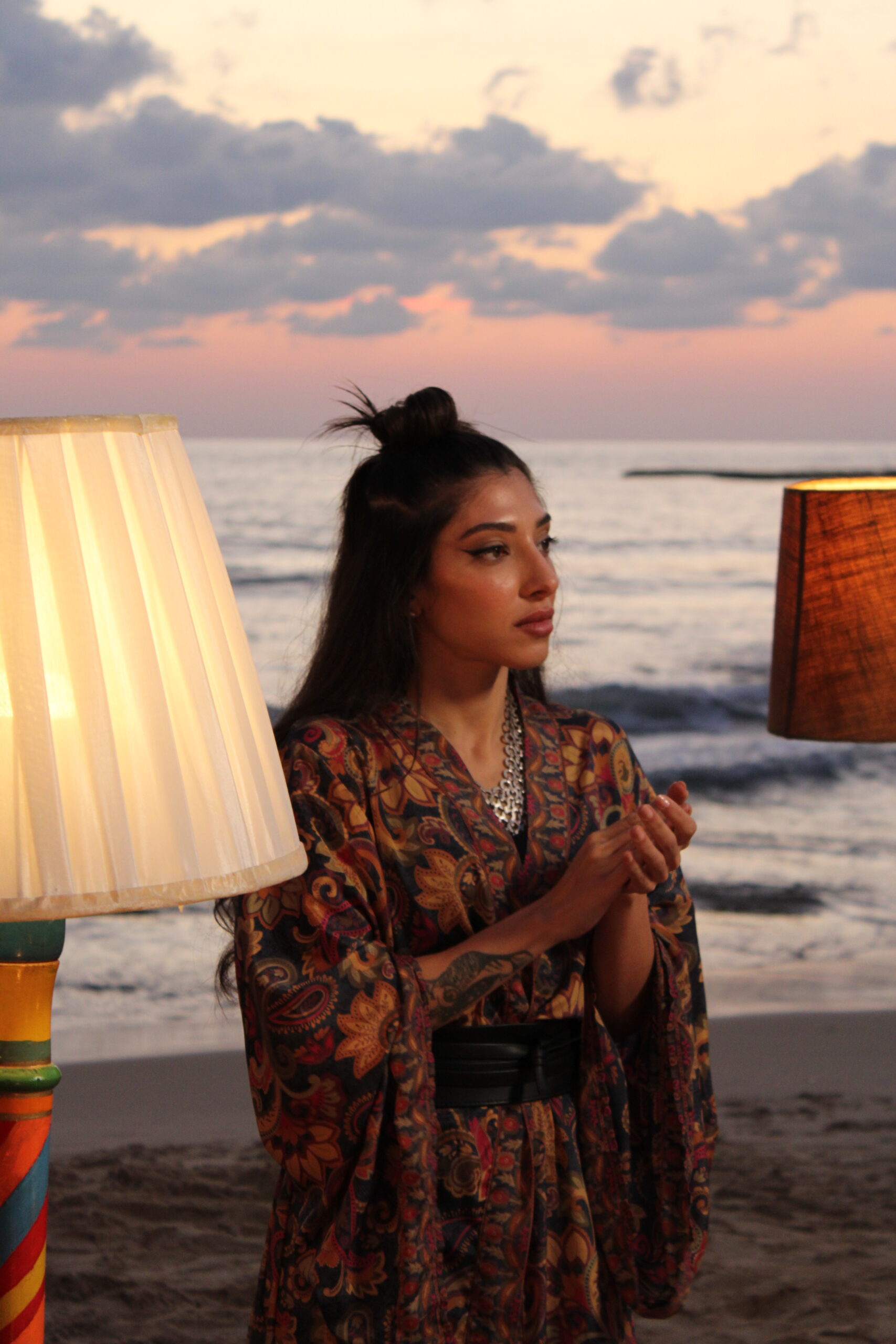
You play with so many sonic textures – Amapiano, Arabic pop, Afrobeats, Bedouin melodies. Is genre something you think about consciously, or is it more instinctive?
It’s definitely instinctive. I never sit-down thinking “I’m going to make an ama piano track” or “this has to sound like Arabic pop”. I just follow what feels right in the moment. I’ve personally never been loyal to one genre as a listener, and that naturally reflects in my music.
I grew up surround by a mix of cultures and sounds- from levant music, to west African, to Kuwaiti radio, to classical music – and I still listen to everything from jazz, to techno to folkloric chants.
So, when I create, all these influences live in me and flow into the sound naturally. I don’t want to be boxed into one genre or pinned down to a specific sound. That would feel limiting. Music is too big, too rich for that. I want every track to feel like its own little universe, shaped by feeling, not by category.
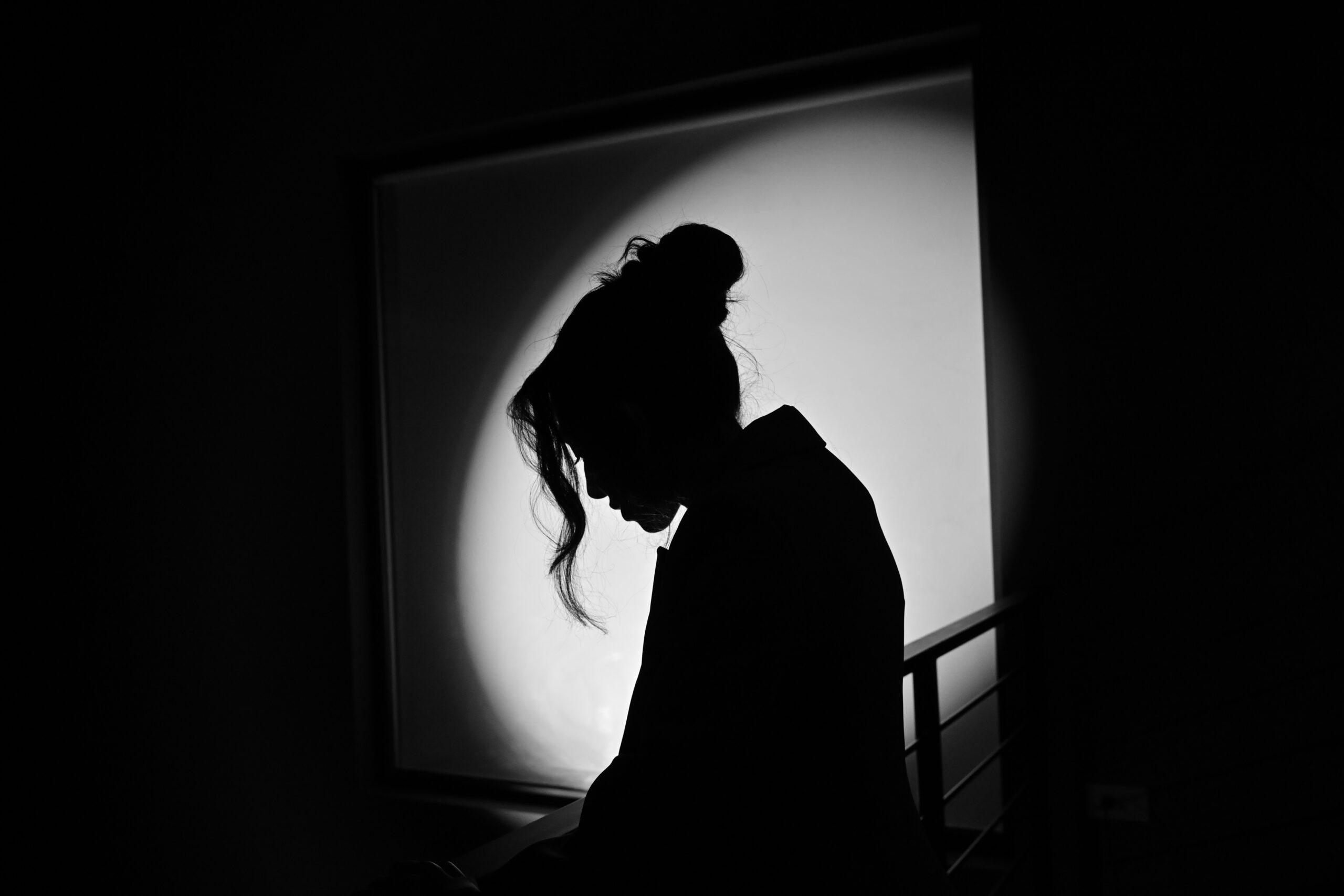
You worked closely with Sleiman Damien – how did the collaboration push you creatively?
I was actually a fan of Sleiman Damien for a couple of years before I ever imagined working with him. His production style stood out to me- it was simple in the best way: intentional, clean, and emotionally on point. So, when I finally got the chance to collaborate with him, it honestly felt too good to be true.
At first, I was hesitant. I didn’t have a defined style or genre – I wanted to create freely and have fun with it. I wasn’t sure how that would land with someone as established and polished as Sleiman.
But to my surprise, he completely embraced that approach. He was on the same wave – open, experimental, and honest in the process. What really pushed me was how much trust and space he gave me. Having someone I look up to respect my sound and energy gave me a different kind of confidence.
He didn’t try to reshape what I was doing – he amplified it. That collaboration reminded me that not knowing exactly where you’re going can still lead to something powerful when the chemistry is right.
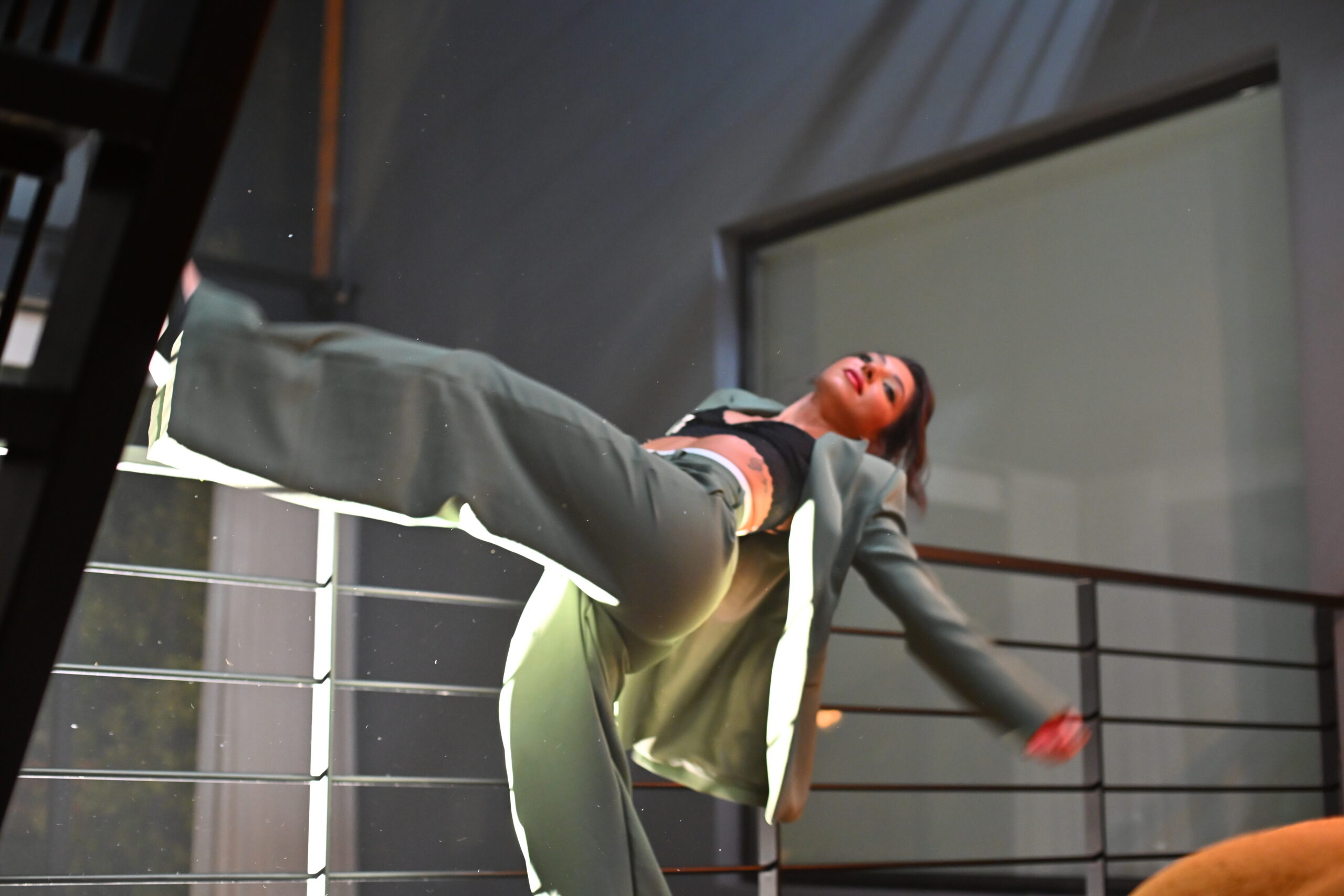
Does being based in Kuwait affect how you’re perceived or how you see yourself within the wider Arabic music space?
Absolutely – it played a big role. Being based in Kuwait, which isn’t usually seen as a music capital in the region, definitely affects how I’m perceived. Sometimes it feels like you’re on the margins of the wider Arabic music scene, where most of the attention is focused on places like Egypt, Lebanon and Dubai. But at the same time Kuwait has given me something incredibly valuable – stage experience.
I played a lot of gigs here, and those shows shaped how I perform and connect with an audience. It taught me how to hold space, how to read energy, and how to adapt. Kuwait gave me a foundation that was raw and real – not glamourised, but deeply formative.
It can still feel isolating sometimes, as there are certain guidelines to follow as a performer being based here, but it also gave me freedom. I wasn’t surrounded by a big industry machine, so I had room to figure out my own sound and identity.
Being here taught me that you don’t have to come from the “centre” to have something worth saying. And I hope by putting my work out there, I help shine a light on the creative voices coming from places that are often overlooked.
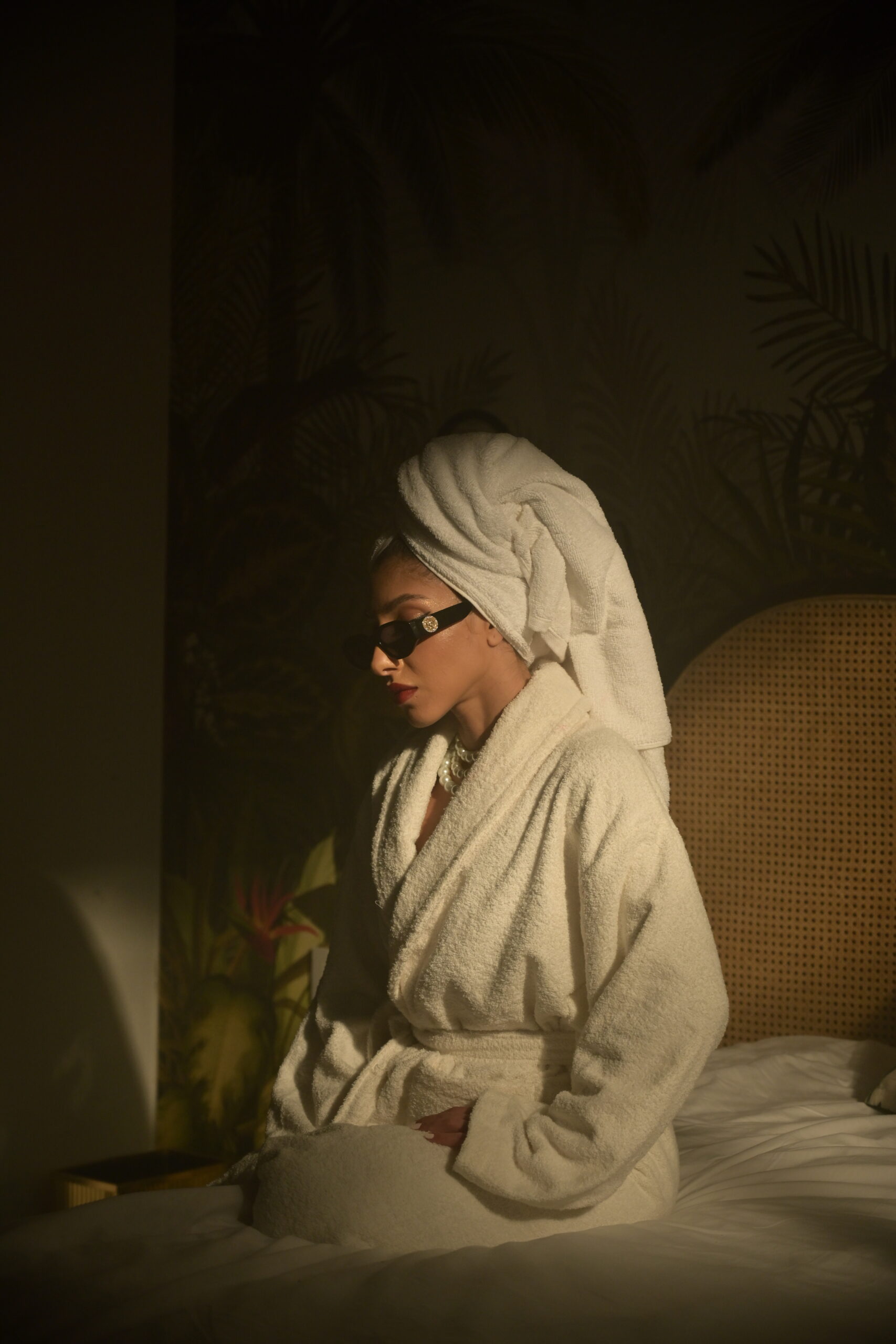
What do you hope this project unlocks for you? Not just in terms of your career, but your creative life?
With every project I release, I notice how it opens up something new in me creatively – how it pushes me to go bigger, think bolder, and create more freely next time around. So, with “Habba”, I hope it unlocks a new level of instinct and freedom in my creative process. I want it to strip away hesitation and overthinking, and make room for even more experimentation, more trust in my gut, and more honesty in my sound.
Career wise, of course I hope it helps me reach more people and connect with listeners across the region and beyond. But personally, I’m excited for what it might unlock within- because every release teaches me something, and I already feel like the net project is going to be even more fearless because of what “Habba” helped me discover.

For more interviews like this one with Rita Malek, head to our dedicated music archive here.
